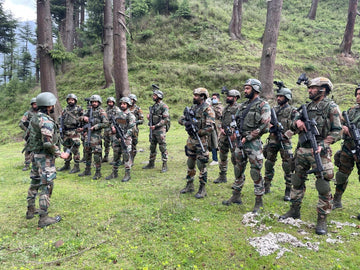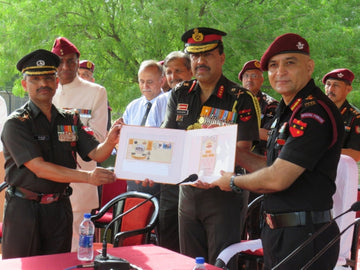To prepare effectively for the AFCAT (Air Force Common Admission Test) in 2025, candidates need to adopt a strategic and disciplined approach. This examination holds significant importance as it selects Class A Gazetted Officers for both the Flying and Ground Duty (Technical and Non-Technical) branches of the Indian Air Force. This article encompasses a comprehensive plan detailing preparation tips, subject-specific strategies, and insights crucial for excelling in the AFCAT.
Understanding the Syllabus and Exam Pattern
The AFCAT exam serves as a gateway to a prestigious career in the Indian Air Force. With a clear understanding of the syllabus and exam pattern, candidates can channel their efforts efficiently.
Exam Structure
The AFCAT consists of four core sections:
- General Awareness (GA): 25 questions
- Verbal Ability in English (VAE): 30 questions
- Numerical Ability (NA): 18 questions
- Reasoning and Military Aptitude (RMA): 27 questions
This totals 100 questions, amounting to 100 marks, and candidates have two hours to complete the test (Indian Air Force, 2023). It’s crucial to understand that each question carries 1 mark, with a penalty of 1/3 mark for each incorrect answer. Familiarity with this structure not only aids in developing a focused study plan but also enhances time management during the exam.
Study Plan and Consistency
A careful, structured study plan is the backbone of successful AFCAT preparation. To maximize efficiency:
- Establish Daily Goals: Allocate 2-3 hours daily for focused study sessions. Identify your strengths and weaknesses in each subject to tailor your study plan accordingly.
- Small, Manageable Tasks: Break down content into smaller topics and set incremental milestones. This will help maintain motivation and track progress effectively.
- Regular Revision: Incorporate regular revision sessions into your study plan. Weekly reviews help retain information and clarify doubts.
Example of a Weekly Study Planner
Monday: General Awareness (focus on current affairs)
Tuesday: Verbal Ability (reading comprehension and vocabulary)
Wednesday: Numerical Ability (basic arithmetic and algebra)
Thursday: Reasoning and Military Aptitude (pattern recognition and logic puzzles)
Friday: Mock Tests (at least one full-length test)
Saturday: Revision (focus on mistakes made in mock tests)
Sunday: Rest and reflect on the past week.
Revision and Practice
Revision is where preparation is solidified. Successful candidates typically emphasize consistency in their review efforts.
Effective Revision Techniques
- Visual Aids: Utilize tools like mind maps and flashcards to summarize and visualize complex information.
- Daily Notes: Maintain a notebook for important formulae, current affairs, or grammatical rules. This reference material becomes invaluable when preparing for the final exam.
Regular revision sessions ensure that knowledge remains fresh and accessible, significantly improving recall ability during the exam.
Mock Tests and Previous Year Papers
Simulating the exam experience through mock tests and analyzing previous year question papers is crucial for effective preparation.
Importance of Mock Testing
- Familiarity with Question Types: Exposure to the format and types of questions will build confidence and reduce anxiety.
- Time Management: Practicing under timed conditions helps improve speed and efficiency.
- Identifying Weak Areas: Regularly reviewing mock test results reveals specific subjects or types of questions needing further attention.
Strategy for Mock Tests
- Schedule mock tests every week, progressively increasing the difficulty level.
- Analyze performance post-test. Identify wrong answers, understand why the mistake occurred, and revisit relevant topics.
Subject-Wise Tips
General Awareness (GA)
Staying updated is fundamental for the General Awareness section.
- Daily Habits: Read reputable newspapers such as The Hindu or Indian Express to stay abreast of current events.
- Preparation Materials: Leverage SSBCrack's study materials focused on history, geography, and polity to bolster knowledge in these areas.
Verbal Ability in English (VAE)
A strong command of the English language is essential.
- Reading Practice: Enhance reading speed and comprehension by tackling diverse materials, including novels, articles, and essays.
- Grammar and Vocabulary: Regularly practice grammar exercises and build vocabulary using apps or flashcards. Focus on synonyms, antonyms, and idiomatic expressions which often feature in the exam.
Numerical Ability (NA) and Reasoning
Both sections require balanced attention.
- Mathematics: Strengthen your mathematical foundation by practicing basic arithmetic, algebra, and geometry. Utilize online resources and calculators to check solutions.
- Reasoning: Solve puzzles and logical reasoning problems to improve critical thinking and speed.
Time Management during the Exam
Effective time management can make or break your exam performance. Consider these strategies:
- Prioritize Questions: Answer questions you are most confident about first to secure marks early on.
- Track Time: Allocate approximately 1 minute per question on average. If uncertain, mark the question for review later and move on.
- Control Stress: Maintaining a calm demeanor will help with focus and efficiency.
Health and Stress Management
Maintaining physical and mental health during preparation is vital for optimal performance.
Physical Well-being
- Exercise Regularly: Engage in physical activities like running, swimming, or yoga, which helps improve concentration and reduces anxiety.
- Balanced Diet: Ensure a nutritious diet rich in proteins, vitamins, and hydration. Foods like nuts, fruits, and whole grains support mental clarity.
Mental Health
- Adequate Sleep: Prioritize sleep, especially in the days leading to the exam. A well-rested mind is more effective.
- Mindfulness Techniques: Practice meditation or breathing exercises to enhance focus and reduce test anxiety.
Exam Day Preparation
Preparation is only half the battle; the day of the exam is equally critical.
Final Checks
- Documents: Ensure you have the admit card printed, along with a valid ID proof.
- Avoid Electronic Devices: Leave mobile phones and other electronic devices at home to avoid unnecessary distractions.
Additional Tips
As you gear up for one of your most critical exams, remember:
- Practice, Practice, Practice: Continuous practice is key to success. The more questions you tackle, the more comfortable you’ll be with the content.
- Know the Exam Structure: Familiarity with the exam pattern and important topics helps streamline the preparation process.
Conclusion
Preparing for the AFCAT is a rigorous yet rewarding journey that requires commitment, discipline, and smart strategy. By adopting a structured study plan, dedicating sufficient time to each section, and maintaining physical and mental health, candidates can significantly enhance their chances of success. With determination and the right resources, such as those provided by SSBCrack and SSBCrackExams, candidates can navigate this demanding examination and take the first step into a fulfilling career with the Indian Air Force.
As you embark on your AFCAT preparation, remember that success is not just about hard work; it's also about working smart. Trust in the process, stay focused, and keep your goals in sight.





